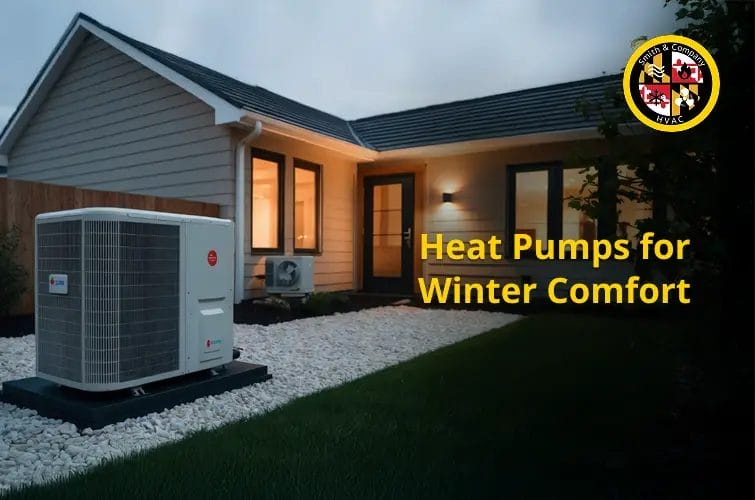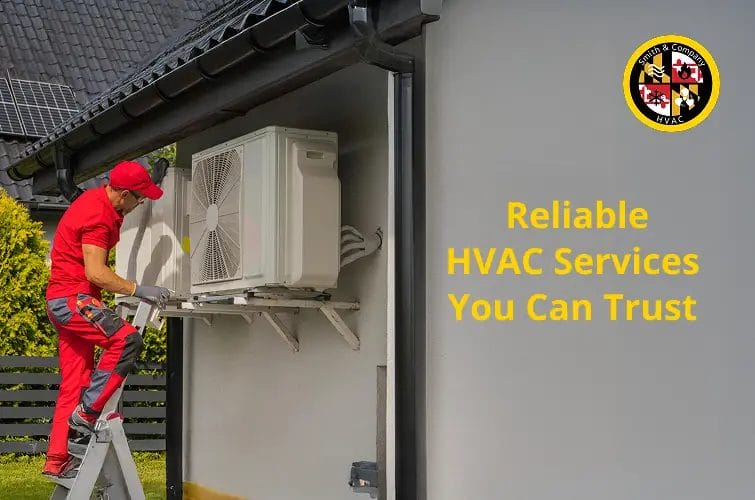
Winter can be challenging for homeowners seeking warmth and energy efficiency. Traditional heating methods, like furnaces and electric heaters, are effective but often costly and less environmentally friendly. Heat pumps have emerged as an efficient alternative, offering consistent heating while keeping energy bills under control. Understanding how heat pumps work and their role in winter heating can help homeowners make informed decisions about their HVAC systems.
How Heat Pumps Work in Cold Weather
A heat pump is an energy-efficient system that transfers heat rather than generating it through combustion or electric resistance. In winter, it extracts heat from the outside air, even when temperatures drop, and transfers it indoors to maintain a comfortable environment. Unlike traditional heaters, which burn fuel or rely entirely on electricity to generate warmth, heat pumps utilize advanced refrigerant technology to transfer heat efficiently.
Modern cold-climate heat pumps are designed to maintain performance even in sub-freezing temperatures. Homeowners in regions like Maryland and Washington, D.C., benefit from this technology because it reduces reliance on supplemental heating while providing a consistent indoor temperature.
Types of Heat Pumps
Understanding the different types of heat pumps can help homeowners choose the most effective solution for winter heating:
- Air-Source Heat Pumps: Extract heat from outdoor air and transfer it indoors. Modern models are optimized for colder climates and can provide reliable winter heating.
- Ground-Source (Geothermal) Heat Pumps: Utilize the stable temperature of the earth to heat homes efficiently. They are more energy-intensive to install but offer excellent long-term savings.
- Hybrid Heat Pumps: Combine a heat pump with a conventional furnace, automatically switching between the two for maximum efficiency during extreme cold.
Each type has unique benefits, and selecting the right system often depends on the size of the home, insulation, and local climate conditions.
Benefits of Heat Pumps for Winter Heating
Investing in a heat pump can transform winter comfort in several ways:
- Energy Efficiency: Heat pumps are significantly more energy-efficient than traditional electric heating systems, helping homeowners reduce heating costs while maintaining comfortable indoor temperatures.
- Consistent Comfort: By continuously transferring heat, heat pumps maintain even indoor temperatures, eliminating cold spots common with other heating systems.
- Dual Functionality: Many heat pumps offer both heating and cooling, providing year-round climate control without the need for separate systems.
- Environmentally Friendly: Since heat pumps transfer heat rather than generating it through combustion, they produce fewer greenhouse gas emissions.
- Lower Maintenance Requirements: With fewer mechanical components than traditional furnaces, heat pumps generally require less frequent repairs if properly maintained.
Installation Considerations for Homeowners
Proper heat pump installation is critical to ensure optimal performance. Key factors include:
- Sizing the Unit Correctly: An oversized or undersized unit can reduce efficiency and comfort. A qualified HVAC contractor can perform load calculations to determine the correct size of the system.
- Ductwork and Zoning: Efficient airflow and zoning ensure that heated air reaches all areas of the home evenly.
- Supplemental Heating Needs: In extremely cold weather, a backup heating source may be required, especially for older homes with poor insulation.
- Professional Installation: Experienced technicians ensure the system operates efficiently, preventing common issues such as refrigerant leaks, improper thermostat setup, or airflow problems.
Investing in professional heat pump installation ensures that the system operates at peak performance from the outset, maximizing energy savings during the winter months.
Winter-Specific Tips for Heat Pump Efficiency
Even the most advanced heat pumps benefit from proper usage during winter. Homeowners can take several steps to reduce energy bills without sacrificing comfort:
- Set a Consistent Temperature: Avoid large fluctuations in indoor temperatures. Smart thermostats can automate this process.
- Regular Maintenance: Schedule seasonal HVAC services to inspect the system, clean filters, and check for refrigerant levels. This prevents energy loss and extends the unit’s lifespan.
- Seal Drafts: Insulate doors, windows, and attics to reduce heat loss. Efficient heat transfer depends on maintaining a comfortable indoor temperature.
- Optimize Airflow: Keep vents unobstructed and ensure that furniture or rugs do not block airflow from the heat pump.
- Monitor Energy Use: Many heat pumps provide usage data, allowing homeowners to make informed decisions about comfort settings.
Safety and Reliability Considerations
While heat pumps are generally safe, regular monitoring and maintenance ensure continued reliability:
- Early Detection of Issues: Modern heat pumps are equipped with sensors that detect unusual cycling, low airflow, or component malfunctions.
- Prompt Repairs: Addressing small problems early prevents costly breakdowns. Emergencies can be mitigated with emergency HVAC services when needed.
- Filter Replacement: Clean air filters reduce strain on the system and improve indoor air quality.
These practices help maintain consistent winter heating and reduce the likelihood of unexpected failures.
Cost vs. Savings
The initial cost of installing a heat pump can be higher than traditional systems, especially for geothermal units. However, the energy savings often offset the investment within a few years:
- Energy Savings: Using a heat pump can lead to noticeable savings on winter heating costs, especially when paired with proper home insulation.
- Incentives: Federal and state energy efficiency programs may offer rebates for ENERGY STAR-certified heat pumps.
- Longevity: With proper maintenance, heat pumps can last 15–20 years, making them a long-term solution for home comfort.
Why Choose Smith & Company HVAC

When considering heat pump installation, ongoing HVAC services, or emergency support, Smith & Company HVAC stands out for homeowners across Maryland and Washington, D.C.
Here’s why:
- Certified Experts: Skilled technicians handle all types of heat pump systems with precision and care.
- Comprehensive Services: From installation and seasonal maintenance to emergency HVAC services, the team manages every aspect of your heating system.
- Energy Efficiency Focus: We prioritize solutions that reduce energy costs and environmental impact.
- Local Expertise: Serving Anne Arundel County, Baltimore County, and Washington, D.C., we understand regional climate challenges.
- Transparent Service: Honest pricing, detailed guidance, and dependable solutions ensure peace of mind for homeowners.
Partnering with us ensures your home stays warm, efficient, and reliable throughout the entire winter season. Schedule a consultation with us today to learn how a heat pump can improve your winter heating experience.
Frequently Asked Questions
1. Can heat pumps handle extremely cold winters?
Yes, modern cold-climate heat pumps can operate efficiently in sub-freezing temperatures; however, some homes may require supplemental heating during extreme cold snaps.
2. How often should I schedule maintenance for my heat pump?
Annual maintenance is recommended before winter to ensure peak performance and energy efficiency.
3. Are heat pumps suitable for older homes?
Yes, but older homes may require upgrades to their ductwork or the installation of supplemental systems to optimize performance.
4. How long does a typical heat pump last?
With proper maintenance, air-source heat pumps typically last 15–20 years, while geothermal systems can last up to 25 years.
5. Can a heat pump reduce my carbon footprint?
Absolutely. By transferring heat instead of generating it through combustion, heat pumps significantly reduce greenhouse gas emissions.
